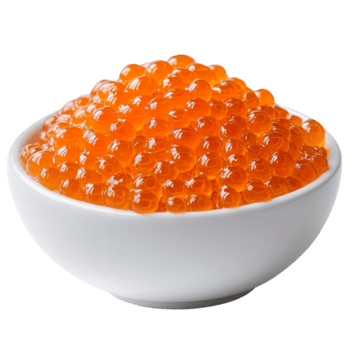Vital Foods
Vital foods are defined as natural, unprocessed, and enzymatically active substances that retain their full complement of nutrients, including vitamins, minerals, essential fatty acids, and beneficial microorganisms. Unlike cooked or chemically altered foods, these maintain their structural integrity and bioavailability, supporting optimal digestion, metabolic function, and cellular regeneration. Consuming vital foods provides the body with the necessary biochemical substrates to sustain homeostasis and promote overall physiological resilience.
Muscle Meat
Meat, a complete protein source, provides all essential nutrients for human life, including amino acids, vitamins, and minerals. The Bellevue Hospital experiment of 1928 demonstrated that a solely meat-based diet can sustain excellent health. Muscle proteins, like myosin and actin, contribute to structure and function. Fat in meat, both adipose and intramuscular, offers energy and essential nutrients.
Organ Meat
Organ meats, also known as offal, refer to the internal organs and entrails of animals that are consumed as food. Common types of organ meats include liver, kidneys, heart, brains, tongue, tripe, and sweetbreads. Organ meats are composed of water, protein, fats and are extremely dense in fat soluble vitamins A, E, D and K as well as B vitamins and minerals.
Fish & Shellfish
Seafood such as fish and shellfish are a rich source of bioavailable proteins, fats, vitamins and minerals necessary for cellular regeneration and bodily functions. They also contain high amounts of DHA and EPA Omega 3 Oils beneficial to neurodevelopment, cognition and overall brain function.
Milk, Raw
Raw milk is nutritious and delicious with a wonderful sweet and creamy taste. It offers a complete nutritional profile, including enzymes, vitamins, and minerals. Unlike pasteurised milk, which destroys half of these vital nutrients, raw milk provides excellent nourishment and promotes overall health.
Fish Roe
Fish roe is a prized traditional food valued for its exceptional nutrient density. Rich in bioavailable vitamins A, D, and K2, along with DHA and EPA, it supports brain development, hormonal balance, and strong bones. Traditionally reserved for fertility and growth, roe delivers these vital nutrients in their natural, synergistic form.
Butter, Raw unsalted
Fat cleanses, fuels, lubricates and protects the body. It is needed more than any other single nutrient. It aids in mineral and protein utilisation, and its raw form is crucial for optimal health. Unlike cooked fats, which are often poorly digested and assimilated, raw fats from sources like raw butter, eggs, cream, meat, cheese, coconut, avocados are easily utilised. Raw fats help bind and eliminate toxins, soothe tissues, heal organs, and support cellular reproduction.
Cheese, Raw unsalted
Similar to clay, Cheese supplies concentrations of minerals that bind with radicals and poisons that the body dumped into the stomach and intestines. Also, cheese draws the poisons from the blood, nervous and lymphatic systems as they pass through the stomach and intestines. Unsalted Raw cheese acts like a sponge to absorb these toxins, relieving nausea.
Bird Eggs
Eggs are a highly nutritious food, offering a diverse range of essential nutrients. They are a complete protein source, rich in healthy fats, vitamins (A, D, E, K, B vitamins), and minerals (selenium, phosphorus, choline). Eggs support brain health, eye health, muscle growth, weight management, and immune function. By incorporating eggs into your diet, you can reap the benefits of this versatile and nutritious food.
Honey, unheated
Contains an insulin like substance that is produced by beens when collecting nectar. That insulin like substance converts 90% of nectar into enzymes that help digest, assimilate and utilise protein. Unheated honey is a wonderful sweet food that helps digest all types of meat.
Honey that is heated above 39°C is radical sugar that causes slow deterioration of membranes in the body.
Fruit
Too much fruit causes over emotionality because it causes low blood protein and blood fat levels, disrupts the blood sugar, irritates tissues and leeches fats from the nervous system, causing lesions in the myelin. Eating fruit with raw fat slows sugar absorption preventing any irritable or hyperactive reactions
References
Weston A Price. (1939). Nutrition and physical degeneration. La Mesa, Ca: Price-Pottenger Nutrition Foundation
Aajonus Vonderplanitz (1997). We want to live. Santa Monica, Ca: Carnelian Bay Castle Press.
Vonderplanitz, A. (2002). The recipe for living without disease. Santa Monica: Carnelian Bay Castle Press
Darko Velcek. (2024). HEALYOURSELF. Available at: https://darkovelcek.wordpress.com
Gropper, S.S., Smith, J.L. & Groff, J.L. (2021) Advanced Nutrition and Human Metabolism. 8th edition










